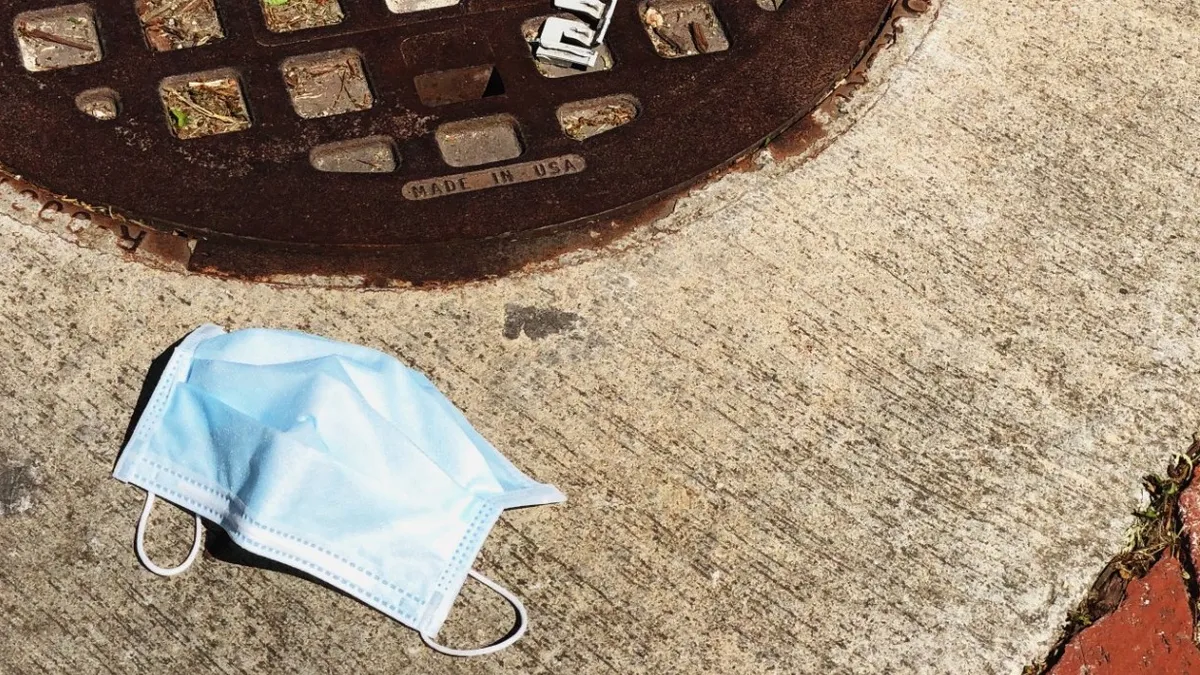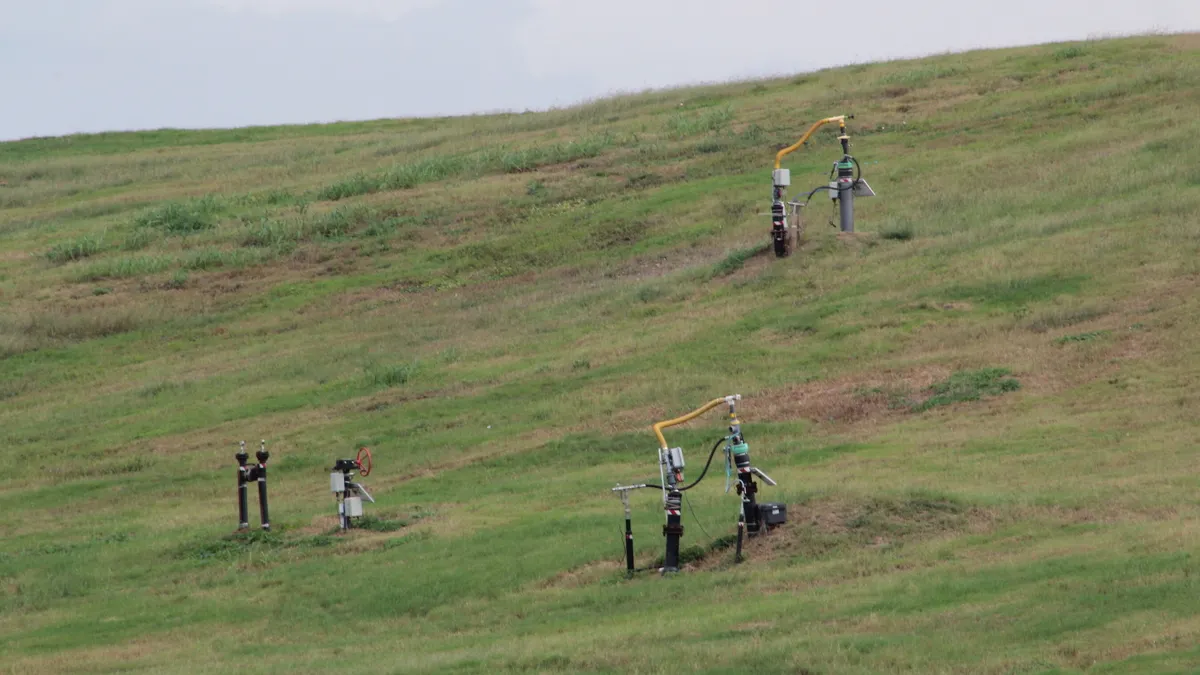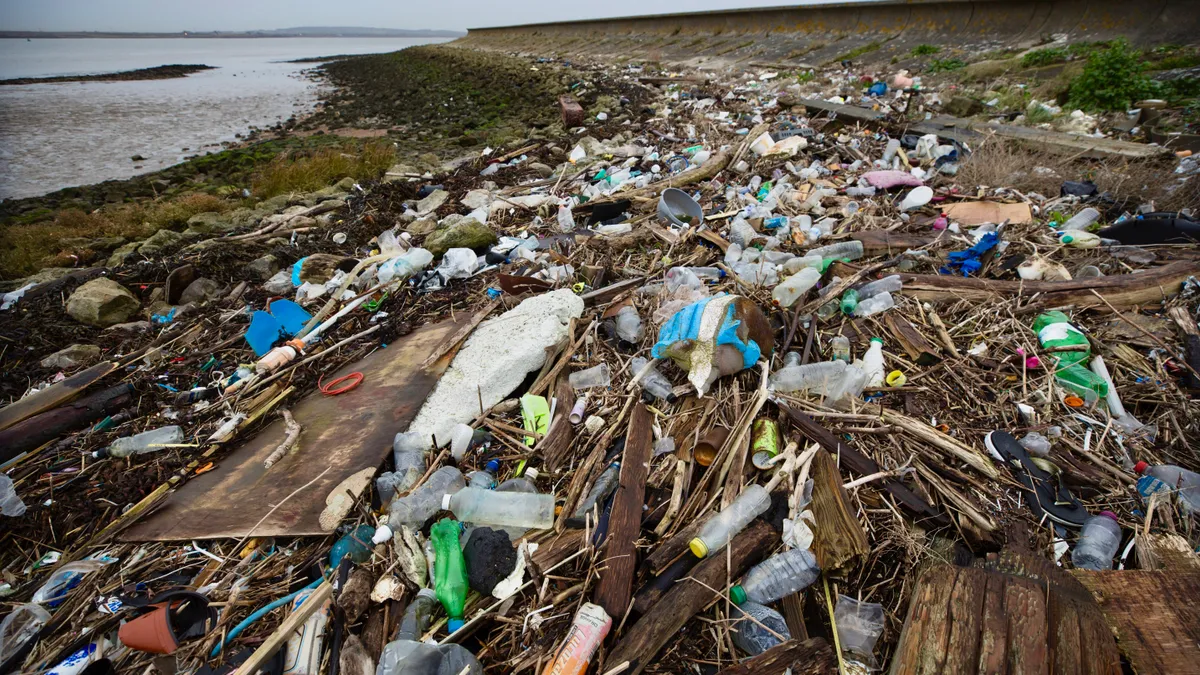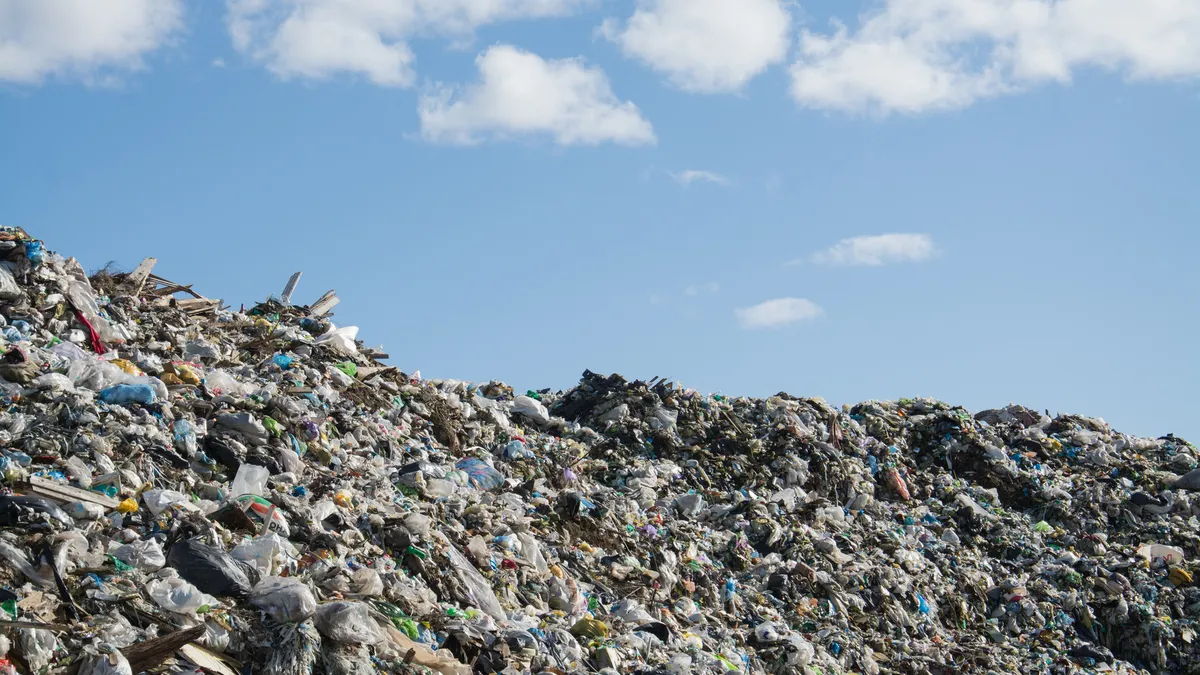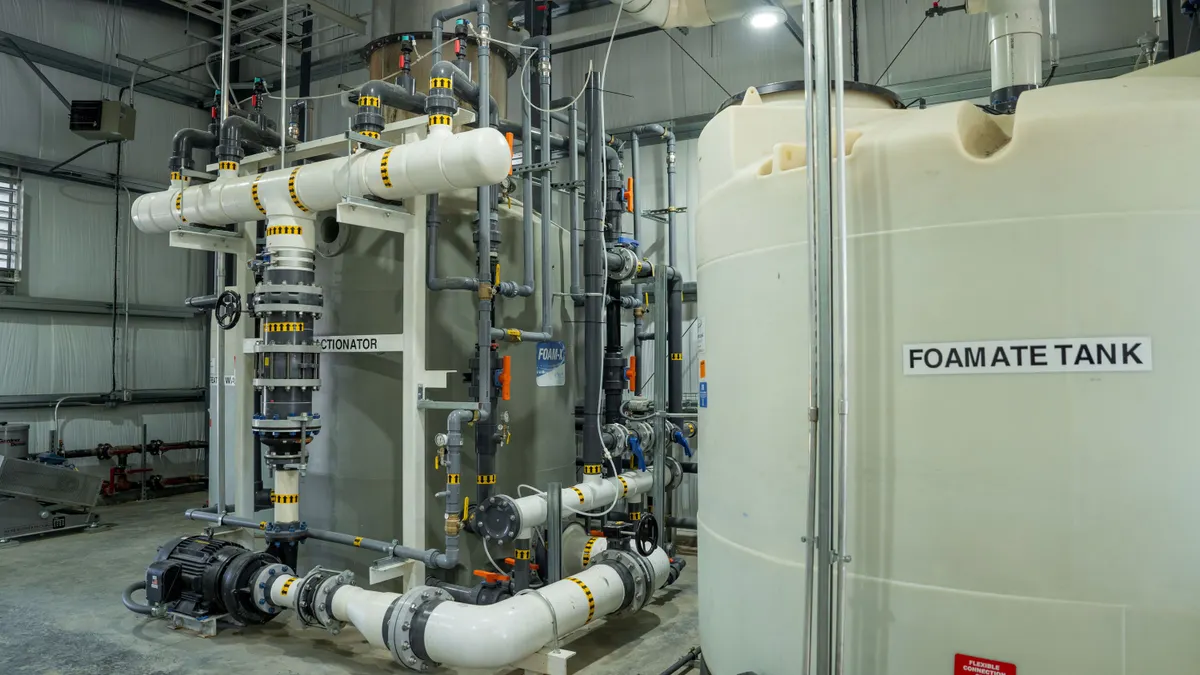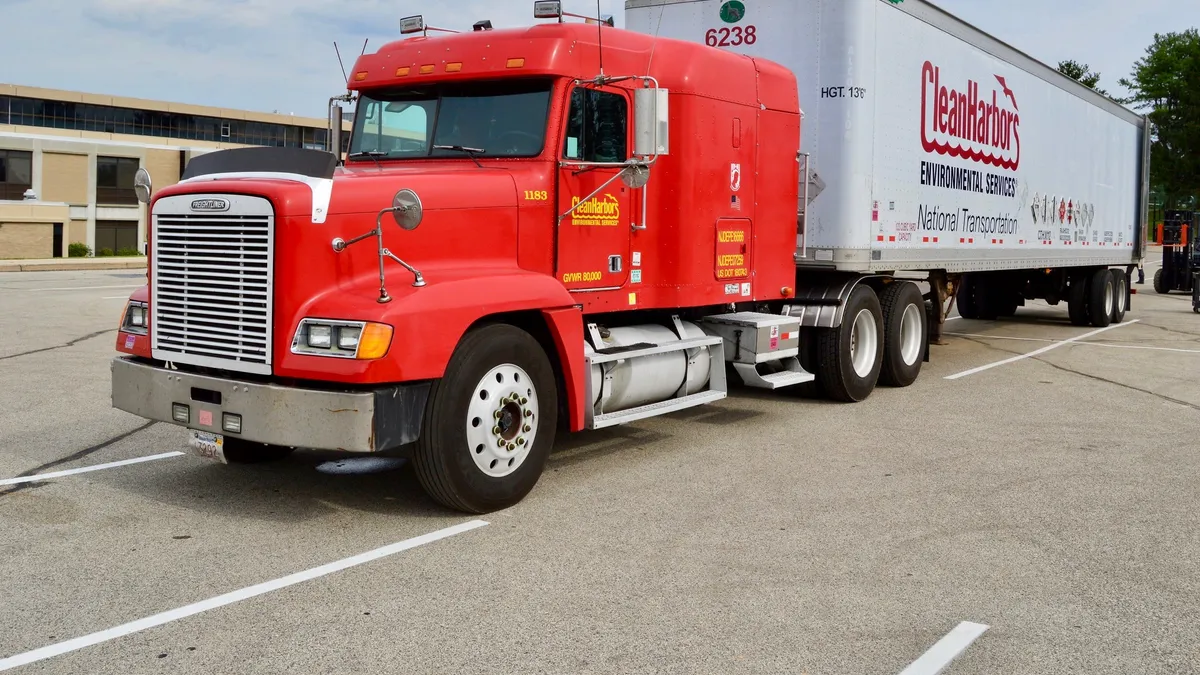Despite early questions about whether the new coronavirus pandemic would generate a significant uptick in medical waste volumes, Q1 earnings reports indicate the impact has been minimal. Information from some of the country's biggest players in the space show volumes are even down in some respects due to the cancellation of elective procedures and other steps associated with the pandemic.
During Stericycle's May 7 call, CEO Cindy Miller said the company has seen "a small decrease" in medical waste volumes "due to the postponement of preventative care and elective surgeries and the temporary closure of smaller, independent health care practices." She said the costs were not offset by service increases due to COVID-19.
Covanta CEO Steve Jones similarly shared the company's three facilities that accept medical waste initially saw a spike in volumes, but that amount ultimately declined. "You saw it in China, there was a lot of COVID-19 waste coming through the system. We haven't seen that come to us at this point," Jones said on Covanta's May 8 earnings call, referencing an initial 42% increase at the beginning of the pandemic but noting a subsequent decline afterwards.
In mid-March, U.S. companies were closely monitoring medical waste volumes as the virus ramped up across the country. That vigilance came amid reports in English-language Chinese media highlighting the struggles of nearly 30 cities in the country as they sought to control waste associated with COVID-19. At the time, the South China Morning Post reported at least one city — Wuhan, believed to be the original epicenter of the virus — was producing more than six times its typical amount of medical waste.
But the trajectory seems to be different in the United States. As the pandemic worsened in March, Stericycle Vice President Selin Hoboy advised against "overclassification" of medical waste, citing concerns that MSW could overwhelm the health care industry. Multiple medical waste experts told Waste Dive the virus is classified as a Category B situation, and so exposure to it poses a lower risk threshold than Ebola or another Category A disease. And waste associated with COVID-19 has largely come in the form of discarded personal protective equipment (PPE), as well as solid waste more broadly, rather than bodily fluids or other forms of infectious material.
Brandon Wright, vice president of communications for the National Waste and Recycling Association (NWRA), told Waste Dive PPE is not typically classified as regulated medical waste, which may be a factor when comparing volumes.
"When we compare ourselves to China, what we don't know is how China was classifying the [waste], versus what we do," Wright said. "We weren't clear what level of capacity they were at, when they were talking about going over."
While municipalities have issued varying levels of guidance about the disposal of waste associated with the pandemic, medical waste experts said some of the coronavirus waste is from residential sites where sick people have self-isolated, meaning it's handled as traditional MSW. Meanwhile, any upward spike associated with the virus appears to have been offset by downward trends elsewhere.
"The volume has really not ramped [up] as expected and has been offset by the lack of elective procedures and even normal emergency room visits due to a reduction in [accidents and crime]," said James Regan, director of communications for Covanta, in an email to Waste Dive. "That said, as things start to open up again, all of that could change quickly."
Covanta takes material that has to be incinerated by law, differentiating it from companies like Stericycle, which work more inside of hospitals and doctor's offices. But Jennifer Koenig, vice president of communications for Stericycle, expressed similar sentiments about volumes.
"During April 2020, medical waste pounds collected in North America [were] down 12% compared to April 2019," Koenig told Waste Dive. "We believe this is due to the postponement of preventative care and elective surgeries and the temporary closure of smaller, independent healthcare practices caused by COVID-19."
Other companies are seeing similar trends. Medical waste is a small percentage of the overall hazardous waste that Clean Harbors handles, according to senior vice president of communications Jim Buckley. He told Waste Dive the company frequently interacts with hospitals and health care providers, sources that are now generating more infectious medical waste, especially temporary COVID-19 hospitals and testing labs. But like Stericycle and Covanta, Clean Harbors is seeing more depressed volumes elsewhere.
"In terms of total medical waste, we have not seen an uptick at all as we have seen a decline in 'regular' medical waste," Buckley said. "Given that most hospitals have put off elective surgeries and most non-critical services such as annual physicals or PT or OT, it is not surprising that has been the outcome."
While Clean Harbors has less of a presence in small quantity generator markets, Buckley said the company's peers in the medical waste industry have shared that they are also seeing declines. "Our understanding from them is that many of the individual doctors and certainly dentist's offices are closed to help stop the spread, and that has hurt their volumes substantially," he said, going on to also point to a decline in vision procedures. "Again, that would make sense for why there hasn’t been a medical waste spike, similar to China."
Wright of NWRA said that anecdotally he has observed similar trends. "Collections at dentist's offices, you're just not seeing a lot of that," he noted.
Volumes for companies that have seen a downward trend could change, however, as some areas come out of quarantine and lockdown restrictions are lifted. Jones of Covanta stated during the company's earnings call that while medical waste has been a "mixed bag" during the pandemic, he anticipates volumes could shift in the coming weeks and months.
"My doctor's office just sent me a note the other day they are opening up and then elective procedures will start up again here," Jones said. "I think you'll see a ramp up in regulated medical waste."


